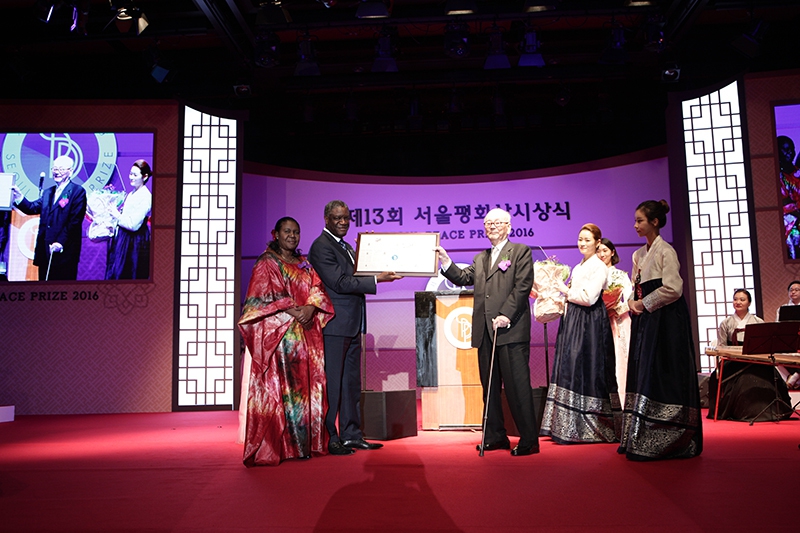 |
|
Congolese gynecologist Denis Mukwege was awarded the 2016 Seoul Peace Prize for establishing a hospital for women and children in the Democratic Republic of Congo. (provided by the Seoul Peace Prize Cultural Foundation)
|
Critics point to failure to prevent 2002 massacre of Muslims by Hindus
Indian Prime Minister Narendra Modi, 69, is scheduled to collect his award on Feb. 22 after being selected as recipient of the 14th Seoul Peace Prize presented by the Seoul Peace Prize Cultural Foundation. Modi is also scheduled to hold a summit with South Korean President Moon Jae-in during his visit as a guest of the state. The two are reportedly planning to discuss South Korea-India economic cooperation, which represents the terminus of the Moon administration’s New Southern Policy. The decision to award Modi the Seoul Peace Prize was made last October. At the time, the prize’s review committee noted that Modi had “achieved an unprecedented rate of growth for the Indian economy and contributed greatly to promoting the international peace that serves as a foundation for strengthening economic cooperation and improving quality of life for the Indian public.” But Modi also faces criticisms over his failure to prevent a 2002 massacre of Muslims by Hindus during his time as governor of the Indian state of Gujarat. The incident erupted after 58 people died in a fire on a train returning from a pilgrimage to a Hindu sacred site. The spread of baseless rumors that the fire was set by Muslims led in turn to attacks and riots against the Muslim minority, instigated by Hindu groups. The official death toll put the number of Muslims and Hindus killed at over 1,000; unofficial estimates report over 2,000 lives lost. Some critics have gone so far as to call the incident an example of “state terrorism” and “ethnic cleansing.” The Seoul Peace Prize Cultural Foundation explained, “Those observations were also made by the review committee last year. But after a 2012 special investigation by the Indian Supreme Court, it was announced that the allegations of Modi’s involvement in abetting the riots during his time as governor were not true, and in some respects he worked to preserve public order.” “The 12 review committee members nominate candidates based on different positions. International Olympic Committee President Thomas Bach was also mentioned, but Prime Minister Modi was selected as the awardee based on majority approval,” the foundation added. Originating from a fund for the 1988 Summer Olympics in Seoul, the Seoul Peace Prize has been awarded roughly every two years since the late former IOC president Juan Antonio Samaranch was selected as the first awardee in 1990. Some of the past Seoul Peace Prize honorees, including Grameen Bank founder Muhammad Yunus and the organization Doctors Without Borders, have also been awarded the Nobel Prize. The Seoul Peace Prize has broadened the horizons of peace in a proactive sense in terms of areas such as economic growth and welfare. That said, the selection of Modi as a recipient leaves something to be desired. By Kim Chang-geum, staff reporter Please direct comments or questions to [english@hani.co.kr]






